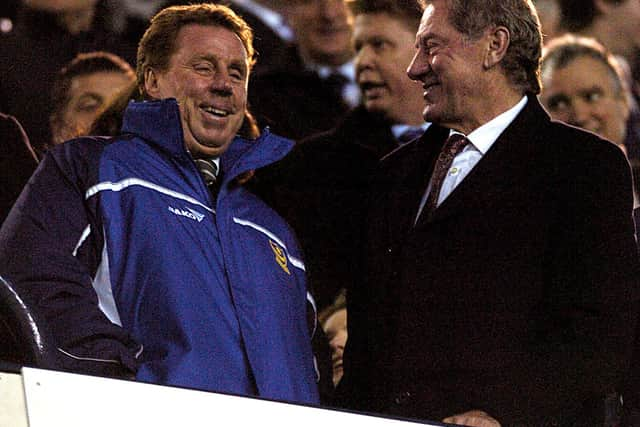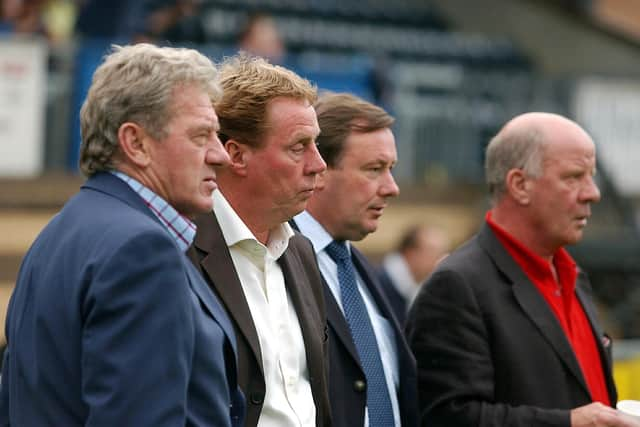Peter Storrie on the truth behind Harry Redknapp's controversial Portsmouth exit - and that move to Southampton
and live on Freeview channel 276
In November 2004, Milan Mandaric’s appointment of former Dinamo Zagreb boss Velimir Zajec as executive director – and desire to remove assistant manager Jim Smith – ripped the Blues apart.
With Pompey 12th in the Premier League, Redknapp walked out insisting: ‘I’ve had 20 years of football management and felt I needed a break. I’m just going to take a bit of time and see what I want to do’.
Advertisement
Hide AdAdvertisement
Hide AdHis return to football was swift – 15 days later joining Southampton.
However, former chief executive Storrie insists Redknapp’s St Mary’s switch was unconnected with his decision to leave the Blues.
He told The News: ‘Harry was packing up the game, he went, had a break – and then had this call from Southampton after.
‘Leaving Pompey and joining Southampton were completely separate.
Advertisement
Hide AdAdvertisement
Hide Ad‘There was a bit of a disagreement between Harry and Milan at the time, they both felt frustrated with each other and Harry took the decision he was going to call it a day.


‘Zajec came in and Harry wasn’t enamoured about that in any way and it ran on from there. Unfortunately, it got to the point where Harry said enough is enough and that he was going to quit the game.
‘When you've done what he did for Pompey and then these changes came in, he was very uncomfortable with it, and felt he would rather call it a day.
‘Harry wouldn’t change his mind, I tried several times, but he was adamant, absolutely adamant. I know him well enough to know when he’s adamant and when he’s not sure.
Advertisement
Hide AdAdvertisement
Hide Ad‘I wasn’t surprised that Harry later went to Southampton, I have known him for 30-odd years. I didn’t think he’d be out of the game for long.


‘In his mind, he was going to pack it up and call it a day – but when he had a phone call a couple of weeks after, he went to them.
‘Harry is very much a family man and Southampton, Bournemouth or Brighton would have been obvious. He wanted to stay down in this part of the world or the London side.’
After taking over as caretaker boss for six matches, Zajec was appointed permanent in December 2004.
Advertisement
Hide AdAdvertisement
Hide AdHowever, he failed to see out the season, replaced by Alain Perrin in April 2005 after five wins in 21 matches in all competitions.


Storrie added: ‘Zajec was Milan’s idea. To be fair, a lot of clubs were moving in that (sporting director) direction and it’s very, very common now.
‘It’s also something which happened in America, Milan liked the idea, taking the job of looking at players away and letting the manager concentrate on football.
‘At the end of the day, we were all employees of Milan Mandaric and if he wanted to do that then you either accept it or move on – which Harry did.’
